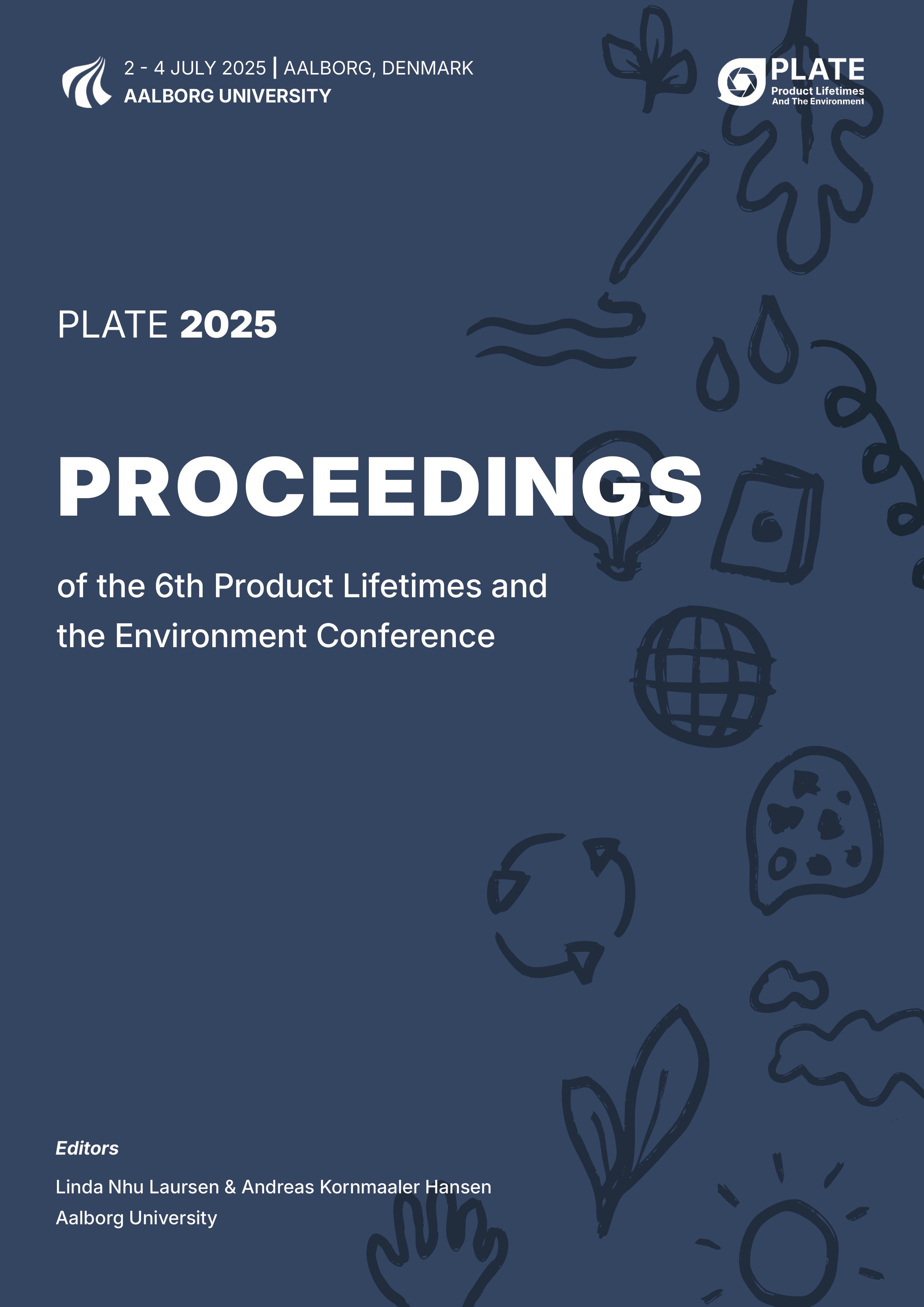Leverage Points as an Analytical Framework for Preventing Rebound Effects
An Exploratory Study
DOI:
https://doi.org/10.54337/plate2025-10314Keywords:
Rebound Effects, Design Thinking, Systems Thinking, Leverage points, Systemic DesignAbstract
Despite global efforts toward sustainability, greenhouse gas emissions continue to rise, partly due to rebound effects (RE), i.e., systemic responses that offset the potential sustainability benefits of sustainability interventions. Designers often struggle to prevent RE due to dynamic complexities characterized by non-linearity, feedback loops, and delays. This paper explores how systems thinking, specifically the Leverage Points Framework (LPF), can support design activities in ideating and designing strategies for preventing RE. Through an exploratory case study of an electric car-sharing system, LPF and ideation techniques were applied to devise potential design strategies to prevent RE emerging from five identified RE mechanisms. Our findings suggest that integrating leverage points into the design process encourages a more systemic and comprehensive approach to ideation, expanding design opportunities towards the prevention of RE. We conclude that combining systems thinking with design thinking enhances the potential for creating effective, sustainable interventions and recommend further research to evaluate the practical potential of the proposed framework.
References
Abson, D. J., Fischer, J., Leventon, J., Newig, J., Schomerus, T., Vilsmaier, U., von Wehrden, H., Abernethy, P., Ives, C. D., Jager, N. W., & Lang, D. J. (2017). Leverage points for sustainability transformation. Ambio, 46(1), 30–39. https://doi.org/10.1007/s13280-016-0800-y
Ackermann, L., & Tunn, V. S. C. (2024). Careless product use in access-based services: A rebound effect and how to address it. Journal of Business Research, 177. https://doi.org/10.1016/j.jbusres.2024.114643
Andrew, E., & Pigosso, D. C. A. (2024). Multidisciplinary perspectives on rebound effects in sustainability: A systematic review. Journal of Cleaner Production, 470, 143366. https://doi.org/10.1016/J.JCLEPRO.2024.143366
Azevedo, I. M. L. (2014). Consumer end-use energy efficiency and rebound effects. In Annual Review of Environment and Resources (Vol. 39, pp. 393–418). Annual Reviews Inc. https://doi.org/10.1146/annurev-environ-021913-153558
Castro, C. G., Trevisan, A. H., Pigosso, D. C. A., & Mascarenhas, J. (2022). The rebound effect of circular economy: Definitions, mechanisms and a research agenda. Journal of Cleaner Production, 345, 131136. https://doi.org/10.1016/J.JCLEPRO.2022.131136
Colmenares, G., Löschel, A., & Madlener, R. (2019). The rebound effect representation in climate and energy models. In Environmental Research Letters (Vol. 15, Issue 12). IOP Publishing Ltd. https://doi.org/10.1088/1748-9326/abc214
de Gooyert, V., Rouwette, E., van Kranenburg, H., Freeman, E., & van Breen, H. (2016). Sustainability transition dynamics: Towards overcoming policy resistance. Technological Forecasting and Social Change, 111, 135–145. https://doi.org/10.1016/J.TECHFORE.2016.06.019
Dori, D., Sillitto, H., Griego, R. M., McKinney, D., Arnold, E. P., Godfrey, P., Martin, J., Jackson, S., & Krob, D. (2020). System Definition, System Worldviews, and Systemness Characteristics. IEEE Systems Journal, 14(2), 1538–1548. https://doi.org/10.1109/JSYST.2019.2904116
Greening, L. A., Greene, D. L., & Di, C. (n.d.). Energy e$ciency and consumption * the rebound e!ect * a survey.
Guzzo, D., Walrave, B., & Pigosso, D. C. A. (2023). Unveiling the dynamic complexity of rebound effects in sustainability transitions: Towards a system’s perspective. In Journal of Cleaner Production (Vol. 405). Elsevier Ltd. https://doi.org/10.1016/j.jclepro.2023.137003
Guzzo, D., Walrave, B., Videira, N., Oliveira, I. C., & Pigosso, D. C. A. (2024). Towards a systemic view on rebound effects: Modelling the feedback loops of rebound mechanisms. Ecological Economics, 217, 108050. https://doi.org/10.1016/J.ECOLECON.2023.108050
Hertwich, E. G. (2005). Consumption and the rebound effect: An industrial ecology perspective. Journal of Industrial Ecology, 9(1–2), 85–98. https://doi.org/10.1162/1088198054084635
Lange, S., Kern, F., Peuckert, J., & Santarius, T. (2021). The Jevons paradox unravelled: A multi-level typology of rebound effects and mechanisms. Energy Research & Social Science, 74, 101982. https://doi.org/10.1016/J.ERSS.2021.101982
Meadows, D. (1999). Leverage Points Places to Intervene in a System.
Metic, J., & Pigosso, D. C. A. (2022). Research avenues for uncovering the rebound effects of the circular economy: A systematic literature review. Journal of Cleaner Production, 368, 133133. https://doi.org/10.1016/J.JCLEPRO.2022.133133
Reimers, H., Jacksohn, A., Appenfeller, D., Lasarov, W., Hüttel, A., Rehdanz, K., Balderjahn, I., & Hoffmann, S. (2021). Indirect rebound effects on the consumer level: A state-of-the-art literature review. In Cleaner and Responsible Consumption (Vol. 3). Elsevier Ltd. https://doi.org/10.1016/j.clrc.2021.100032
Schoenberg, W., Davidsen, P., & Eberlein, R. (2020). Understanding model behavior using the Loops that Matter method. System Dynamics Review, 36(2), 158–190. https://doi.org/10.1002/sdr.1658
Scoones, I. , L. M. , S. A. , S. S. , S. A. and T. (2007). Dynamic Systems and the Challenge of Sustainability. www.wave.coop




